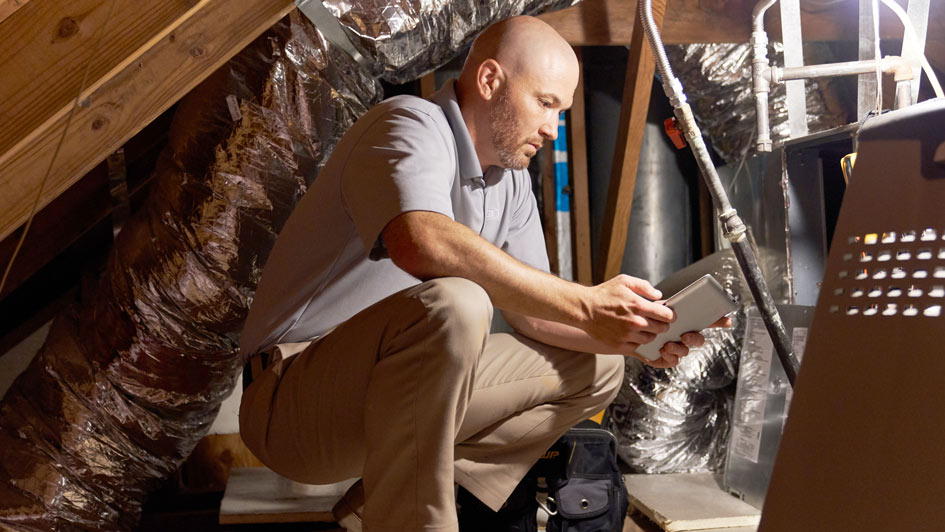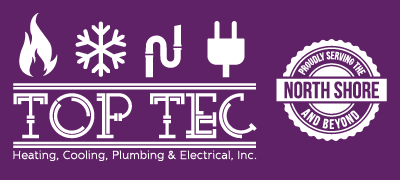
Where you aware that more than 50 percent of your home’s energy costs are needed for your heating and cooling? That’s why it’s essential to have an energy-efficient HVAC system.
Furnace efficiency standards were last updated to an Annual Fuel Utilization Efficiency (AFUE) rating of 80% in 2015. This rating system calculates how effective your furnace is at turning natural gas into heat. An AFUE rating of 80% means your furnace loses about 20% of the fuel it uses while producing heat.
In 2022, President Biden revealed new energy-efficiency standards for residential gas furnaces that would significantly lower emissions, save consumers money and promote sustainability.
The updated standards are estimated to:
- Save Americans $1.9 billion annually.
- Reduce carbon emissions by 373 million metric tons and methane emissions by 5.1 million tons over three decades, the equivalent of what 61 million homes emit yearly.
Starting in 2029, the proposed rule would require all new gas furnaces to feature AFUE ratings of 95%. This means furnaces would combust nearly 100% of the gas into usable heat.
So what does all of this mean for your existing furnace in 2023? As of now, not much, as the proposed rule wouldn’t go into effect until 2029 at the earliest and does not affect furnaces that are already in use.
But if your furnace is nearing the end of its life and a replacement is needed in soon, highly energy-efficient furnaces are already available. Learn how these furnaces can help you save on energy bills now.
Guide to Condensing Furnaces
How Condensing Furnaces Work
A condensing furnace is a type of heating system that uses a secondary heat exchanger to capture wasted heat from the furnace's exhaust gases. This reduces the amount of energy wasted, enhances energy efficiency and lowers greenhouse gas emissions. It also involves less natural gas to generate the same rate of heat when comparing one to other types of furnaces.
How Condensing Furnaces Differ from Non-Condensing Furnaces
The main difference between a condensing furnace and a non-condensing furnace is that the former uses a secondary heat exchanger to gather any wasted heat from its exhaust gases, while the latter does not.
Expected Longevity of a Condensing Furnace
The life span of a condensing furnace will depend on the brand, model and other factors. Generally speaking, a condensing furnace is likely to last between 10-20 years with proper maintenance and regular service. If your heating system doesn’t have regular furnace maintenance, the equipment may have a significantly shorter life span.
Why Condensing Furnaces Cost More
Typically, condensing furnaces type of system is significantly more efficient than standard, single-speed furnaces, as it only utilizes the minimum amount of energy required to heat your home, saving you money in the long run.
Most variable-speed furnaces are condensing furnaces, although some are available in non-condensing models with lower AFUE ratings. In order for a furnace to be classified as a condensing furnace, it must offer an AFUE rating of 90% or higher.
Do Variable-Speed Furnaces Run Nonstop?
A variable-speed furnace doesn’t operate all the time. Alternatively, it runs at different speeds based on the temperature in your Libertyville home as well as the amount of energy it uses to sustain that temperature.
When sufficient energy is required to maintain your desired temperature level, the furnace will increase to a higher speed to handle the demand. Precise fan speeds offer more efficient heating in your home while also offering quieter operation.
Guide to Two-Stage Furnaces
Two-Stage Furnaces: What They Are and How They Work
As the name suggests, a furnace with two levels of operating (high or low) is called a two-stage furnace. On the low stage, the furnace runs at a reduced capacity as a way to maintain the preferred temperature for your home more efficiently. During the high stage, the furnace will instead operate at full capacity to satisfy demands for greater heat. With a two-stage furnace, you can enjoy greater energy efficiency and steady temperatures everywhere in your home.
While two-stage furnaces are very efficient, not all all types are condensing furnaces.
Does a Two-Stage Furnace Operate All the Time?
A two-stage furnace should not run constantly. In the low stage of operation, the furnace runs at reduced capacity in order to maintain a preferred temperature more efficiently within your home. When a greater demand for energy is needed to reach the set temperature, the furnace shifts to its high stage and runs at full capacity. As a result, two-stage furnaces are proven to help reduce energy costs without operating around the clock.
Differences Between Two-Stage and Variable-Speed Furnaces
Two-stage furnaces have two stages of functionality, low and high. During the low stage, the furnace performs at reduced capacity to help sustain a desired temperature within your home. When more warmth or cooling is necessary, the furnace will switch to its high stage and operate at peak capacity.
Variable-speed furnaces, meanwhile, can work at multiple speeds in order to uphold a desired temperature more consistently at home. With more options for temperature settings, you also have more flexibility for heating you home and can enjoy greater savings on energy bills.
Differences Between One- and Two-Stage Furnaces
One-stage furnaces have a single stage fan speed and operate either at full capacity or not at all. In other words, the furnace is always running in order to maintain a desired comfort level at home.
Two-stage furnaces, on the other hand, have two stages of operation, low and high. During the low stage, the furnace runs at reduced capacity in order to maintain the desired temperature more efficiently. When a greater demand for warmth or cooling is needed, the furnace will change over to its high stage and operate at full capacity.
Schedule Your Furnace Installation with TopTec Today
Modern furnace technology can be confusing. That’s why TopTec professionals are here to help with a no-obligation, no-pressure estimate for furnace installation. We’ll assess your home, your heating needs and your budget before helping you find the best solution. Call us at 847-362-0262 to get started today!
